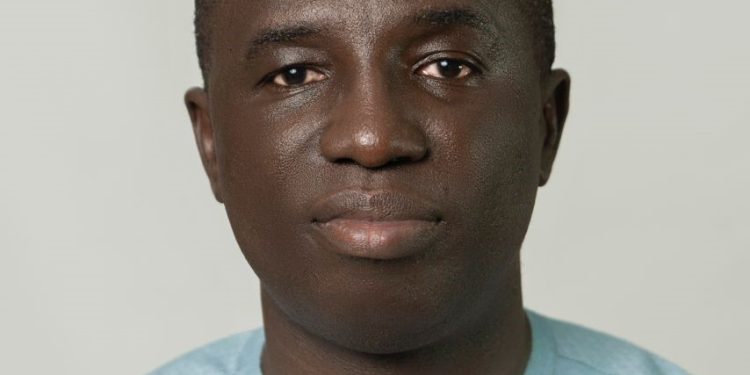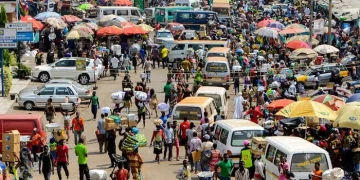Appiah Adomako Ask: Can GTV be Funded Without Distorting Competition in the TV Market?
The recent outcry over GBC’s inability to telecast Ghana’s World Cup qualifying matches reignited public frustration on social media. Many Ghanaians asked why the state broadcaster could not secure broadcasting rights (costing about $750,000.00) to such national events. GBC, on its part, attributed the lapse to inadequate funding. It is an uncomfortable truth that the public broadcaster has been financially anemic for years. Its facilities are aging, its coverage footprint is shrinking, and its programming has lost the appeal it once had when it was the sole television station in the country. As a boy growing up in the 90’s, the state broadcaster was everyone’s darling.
The World Cup qualifiers have resurrected the debate about the return of the television license fee. The TV license touches on three important questions: how to fund public broadcasting sustainably, how to preserve its public service mandate, and how to ensure fair competition in a liberalized media market. GBC, the national broadcaster, sits at the centre of this debate. The state broadcaster is struggling to fulfill its mandate, and yet competing in an increasingly crowded media landscape.
At the heart of the matter is a simple but difficult question: should Ghanaians be compelled to pay the TV license fee as the law prescribes? I do not seek to answer this question today.
Why Public Broadcasting Still Matters
Public broadcasters are not like private channels like UTV, Channel One, GhOne or Joy News. Their mission goes beyond profit or ratings. They are meant to inform, educate, and reflect the cultural and linguistic diversity of the nation. In Ghana, this means producing content not only in Twi, Ga, and Ewe, but also in Dagbani, Nzema, Dagaare, and other indigenous languages. It means airing programs that unite rather than divide, and offering airtime to stories that private broadcasters might ignore because they do not attract advertising revenue.
Private broadcasters operate under commercial logic. They will naturally chase the largest audiences and advertisers, sometimes at the expense of minority voices or rural interests. The public broadcaster, by contrast, exists to balance the public interest with cultural inclusion and national cohesion. Yet, fulfilling this mandate requires deep pockets, which the current arrangement unfortunately does not provide.
The Funding Dilemma
For over two decades, the TV license system in Ghana has failed to work effectively. Many citizens stopped paying because enforcement was weak, and the relevance of the service diminished. Government subventions have also been insufficient to bridge the gap, leaving GBC in a perpetual cycle of underinvestment and decline. We have seen competitor stations poaching journalists from the GBC.
Some argue that since private broadcasters are thriving, there is no need for a public broadcaster. This is a toxic idea. Even the most market-oriented democracies maintain public broadcasting precisely because markets alone cannot guarantee pluralism or access to reliable information for all citizens. The real question, therefore, is not whether GBC should exist, but how it should be funded and governed to serve the public interest effectively without undermining competition in the TV market.
Can the TV Licence Be the Answer?
Reintroducing the TV license fee seems logical, after all, those who consume television should contribute to its production. In principle, a license fee ensures financial independence from both government and advertisers. In practice, however, it has proven difficult to collect efficiently in Ghana. Compliance remains low, and the administrative cost of collection often outweighs the revenue raised.
Globally, many countries that once relied on licence fees are rethinking the model. Nations such as Australia, the Netherlands, Finland, and Singapore have abolished the system, replacing it with direct budgetary support or general taxation. The BBC in the United Kingdom is often cited as a successful example of the licence model, but its uniqueness lies in strict conditions: it cannot air commercial advertising and is insulated from political influence. In Ghana, however, GBC not only collects advertising revenue but also competes directly with private channels for commercial airtime. This dual privilege raises questions about fairness in the broadcasting market.
If GBC is permitted to collect license fees while continuing to sell advertising, it would enjoy a structural advantage over private competitors. With additional revenue guaranteed, GBC could undercut competitors in advertising rates or outbid them for broadcasting rights. For example, they could afford to poach Bernard Avle’s, Samson Lardy’s, and Kwame Sefa-Kayi’s. This would distort competition and could even drive smaller stations out of business. Public funding must not become a tool for unfair competition.
Finding the Right Balance
The challenge, therefore, is how to design a funding mechanism that empowers GBC to perform its public service role without distorting the market. One option is for the government to provide direct but transparent budgetary allocations linked to specific public service obligations. For instance, GBC could receive public funds to produce educational programs, cover national events, or air multilingual content while the commercial side of its operations remains self-financing and accountable.
Another approach is a mixed funding model in which a modest public contribution is complemented by limited commercial revenue, but with clear separation between the two. This would ensure that public funds support public-interest programming, not commercial ventures. Oversight by the National Media Commission (NMC).
Whatever the model, funding alone will not fix GBC’s challenges. The corporation needs structural reforms to improve efficiency, programming quality, and digital presence.
Competition and the Public Interest
Competition, when fair, drives innovation and quality. Since Ghana liberalized its airwaves, the media landscape has flourished, giving viewers more choice and diversity. Private broadcasters have invested in technology, improved storytelling, and created vibrant newsrooms. GBC, unfortunately, did not adapt quickly enough. Reviving it should not mean returning to monopoly days, but rather strengthening it to complement the private sector.
A strong public broadcaster can coexist with private media, provided roles are well defined. The private sector thrives on entertainment and advertisement, while the public broadcaster should prioritize education, culture, and civic information. If each plays to its strength, the overall media ecosystem becomes richer and more balanced.
The Way Forward
A well-funded and well-governed public broadcaster can enrich Ghana’s democracy. TV license may not work in this digital world. Perhaps, government can find some funds from the Communication Service Taxes (CST) to give to GBC. We should stay away from anything that can distort competition in the TV market. Again, the state broadcaster must be assisted to perform its public broadcaster’s mandate.
NB: The writer is a lawyer and a competition economist, and a consumer protection advocate. He is the West Africa Regional Director of CUTS International. He can be contacted via email: apa@cuts.org or www.cuts-accra.org or 0302-254-5652.








